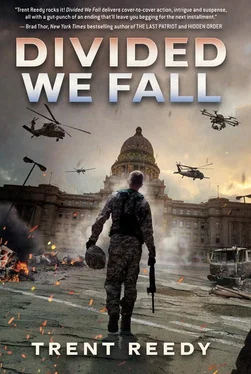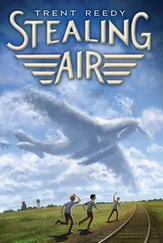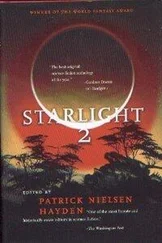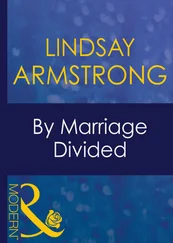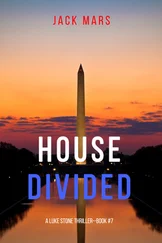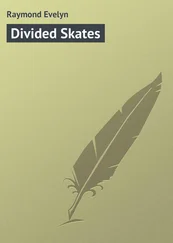We all sat down. General McNabb remained standing. “We’ve secured your weapons and counted the rounds. Eight rounds are missing from this squad’s initial load, one from one rifle, three from another, and four rounds from a third. Now I want to know what happened out there.”
All of us except for the lieutenant exchanged nervous glances around the table. Sergeant Kemp stood up. “Sir, I respectfully request that I be allowed to speak with an attorney before—”
“You don’t need a lawyer, Sergeant. No charges have been filed. I’m trying to find out what happened.”
“Nevertheless, sir, I think that under the circumstances—”
“This isn’t open to negotiation, Sergeant! This isn’t a happy, peaceful civilian world. There are twelve people dead out there. Nine more have injuries from gunshots, including two of my soldiers. I am ordering all of you to tell me what the hell happened!”
Silence fell on the room. Twelve people dead. Twenty-one people had been shot. My mouth felt watery, my stomach cold and hollow. I put my hands to my face for a moment until I smelled the blood. The redheaded girl’s blood was still caked in my fingernails, still sticking my pants to my knees.
I took a deep breath. I didn’t want to throw up again.
The door opened at the end of the room, but I didn’t move or look to see who it was. Luchen grabbed my arm and pulled me up.
Governor Montaine approached the table, wearing a blue suit and tie with a white shirt. His graying brown hair was sticking up funny. He reached into the inside pocket of his jacket and pulled out a pack of cigarettes, a lighter, and a small plastic ashtray. He placed the cigarette in his mouth, flicked the lighter, and lit up, holding out the pack toward our squad. “Smoke?”
I would have loved a cigarette right about then, but nobody else was taking, so I kept my mouth shut.
“It’s a government building, sir,” said Sergeant Kemp.
The man removed his jacket. “That it is. I’m Governor James Montaine.” He hung his coat on the chair, rolled up his sleeves, and loosened his tie. “Sometimes I think we can bend stupid little rules, especially on nights like tonight. Relax. Please sit down.”
We took our seats. The governor flicked a little ash into the ashtray. He pulled another long drag on his cigarette. “I’m not going to lie to you boys. I’m all about straight talk in my campaigns, and believe it or not, I believe in straight talk. And the simple fact is that we are in a world of shit. I have phone calls from everyone all the way to the Pentagon. That guy in the White House will probably be calling soon enough. The press is going crazy, naming this the Battle of Boise. Everybody wants to know what really happened. Why don’t you start by telling me?”
Sergeant Meyers stood up at attention. “Sir, our squad was ordered to go downtown to hold position near the riot. The protestors were out of control, sir.”
“I know that, Sergeant. That’s why I called in the National Guard in the first place. Why did you start shooting?”
I saw Meyers’s eyes dart my way for a second. “Sir, there were armed civilians among the protestors. We took fire. At that point Lieutenant McFee gave the order to shoot those protestors who had guns.”
McFee sat up in his seat and opened his mouth like he was about to speak, but then stopped. The governor looked his way for a moment as if waiting for him. When he stayed silent, the governor raised an eyebrow and took a drag on his cigarette. The cherry flared brightly. After a moment he let the smoke roll out. “You’re telling me that some of the protestors had guns? You say they shot at you?”
“Yes, sir,” said Sergeant Meyers.
This was all wrong. Meyers was trying to pass it all off on the lieutenant. I couldn’t let that happen.
The general cleared his throat. “Why am I only hearing from NCOs? Lieutenant McFee, is this true? Did you give the order to fire?”
The lieutenant’s eyes were wide open.
“Pull yourself together, Lieutenant,” said the general.
McFee licked his lips and swallowed. “Sir, there were a lot of people. Um… protestors. Okay. I’m not… I mean, I don’t—”
I stood up. “Sir, I fired the first shot.”
Everything was quiet. I remembered the feel of the little recoil in my M4. The surprise. How bad I wanted that bullet back.
“What did you say, Private?” the general said.
I thought I saw Sergeant Meyers shake his head a little as if telling me to shut up, but I’d gone this far. I had to tell him now. “Sir, someone in the crowd threw a rock. It hit me in the face. In the gas mask. The shock of it.” My eyes were stinging. No. I couldn’t cry. Not here. I wiped my eyes. “I don’t know. I was surprised. My fingers jerked. I accidentally fired my weapon. I don’t know if I hit… anyone. My lenses in my mask were cracked and I could hardly see. I’m so sorry.”
Governor Montaine sighed. “How old are you?” He sounded different now. Sad.
“Seventeen, sir.”
“Seventeen? You still in high school?” the governor asked.
“Yes, sir,” I said.
“And how old are you, Lieutenant?”
“Twenty… twenty-three, sir.”
The governor snuffed his cigarette out in the ashtray. “Why do I have kids doing missions like this, General?” He spoke slowly and quietly.
If General McNabb noticed the anger in the governor’s voice, he didn’t show it. “Sir, most of the Idaho Army National Guard is deployed to Iran. Our forces here are limited. You asked for enough troops to effectively assist the state police. Young soldiers like this PFC would never deploy without having completed their training for their military occupation specialties, but to accomplish the mission, I was forced to resort to activating almost all of our remaining soldiers, certainly all who had completed basic training and were slotted to a combat unit.”
Governor Montaine walked to the end of the room, looking away from us. He didn’t say anything for a long time. Finally he turned back to me. “Son, I want you to listen to me for a second—”
Something in my chest tightened up. “Don’t call me ‘son,’ sir.”
General McNabb cleared his throat. “Private,” he said in a warning tone.
“Sorry, Governor, but I’m not your son.” It had been me and Mom on our own for a long time now, but I did have a father once. The hell if I was going to let some politician or anyone else call me “son.” “My father was killed in the war,” I said to the governor. “In Afghanistan.”
“He was in the Army?” the governor asked.
“The Idaho Army Guard, sir.”
“Why’d you sign up?”
“Sir?”
The governor sighed again. “You’re only seventeen. Why did you enlist?”
“I signed up because… Sir, I just… I love my home. Wanted to serve my country. Do my part.” I had really believed that when I enlisted. I wanted to believe it now, but after what had happened tonight, my words sounded fake, rehearsed, too polished, like Montaine doing one of his speeches.
The governor shook his head. “The bullets from all the soldiers who were called on this mission have been counted?” He looked at the general, who nodded. “And your squad is the only one missing rounds. Something’s not adding up. Some of the men must have reloaded or fudged their initial round count.”
“Or someone besides my soldiers was firing,” said General McNabb.
“Some of the people in the crowd did have weapons, sir,” said Sergeant Meyers.
Was that true? There was a lot of gunfire, but how could anyone tell where it was coming from? Twenty-one people had been hit, but only eight of my squad’s bullets were gone.
“Of course we’ll know more when we recover the bullets from the…” The governor rubbed his chin. “When we recover the bullets. I doubt anyone in the crowd was firing five-five-six rounds. We’d have spotted a rifle like that on one of our videos. A bullet that wasn’t standard military issue would seem to prove that someone else was shooting.”
Читать дальше
